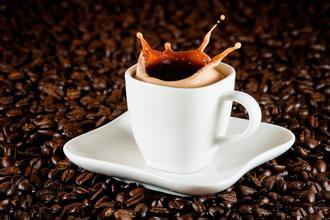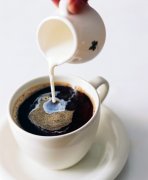Return to the Cafe-Science + Cafe

It is a bold and wonderful way to get science out of the ivory tower and into the cafe, which is far from the atmosphere of the traditional academic environment. Why graft science with the cafe?
Return to the Cafe-Science + Cafe
Wen and Photography / Chen Gang
The host said: we want guests to discuss the latest scientific and technological developments freely and interestingly while tasting coffee or tea. This is not a window to show science and technology, but to expose the public to science and technology as much as possible. Guests can easily share the fun of science while listening to music, drinking coffee and eating melon seeds.
So was their attempt successful? The author had the honor to participate in an activity on the evening of June 21, with the theme "Public participation in science, how scientists understand the needs of the public". The speakers were Mr. Rolend Jokeson, president of the British Association for the Advancement of Science and Ms. Hu Qiheng, vice chairman of the China Association for the Promotion of Science and Technology. What was interesting was a game in which Hu Qiheng asked the people at the coffee table to participate in a game of "Magic Crystal Ball" and played it for several times. Let us guess: why does the crystal ball know which figure you are thinking about? Everyone was enthusiastically discussing and calculating around the coffee table, and some people simply went on stage to manipulate the computer and do it again. After a few minutes, the person who guessed the result was asked to write the answer on paper and put it into the box. Finally, the lid of the box was opened. Hu Qiheng picked out the more correct answer, and asked everyone to tell how he got the result. In the end, four young people won the prize. Everyone realized the magic of computer recognition mode in the relaxed and pleasant guessing. There is no doubt that this is a different and more attractive activity from the popular science activities that the author has participated in in the past, and this makes a boring and obscure scientific topic so vivid, lively and charming that it makes every participant feel that the real connotation of science is creation, discovery, exploration, and life itself, which is simply wonderful. I think no one wants to miss this charm.
In fact, the more boring and obscure it is, the more leisurely and interesting it is. Cavendish Laboratory, which plays an important role in the development of modern science, has been at the forefront of the development of modern science for 134 years. It has created a series of important disciplines, such as electromagnetic theory, gas discharge theory, atomic physics, nuclear physics, X-ray crystal physics, molecular biology, radio astronomy, amorphous physics and so on. A series of important discoveries have been made. It has trained more than 20 Nobel laureates and hundreds of outstanding scientists all over the world. They are still at the forefront of science and have a great impact on science and technology. One of the important reasons why this laboratory has made unparalleled achievements is that it has gradually formed a set of fine traditions and style of study, and its essence is carved on the oak door at the entrance to the new and old site of the laboratory in the west of Cambridge, England. The original sentence is quoted from "Psalm 101" (Latin) "Magna Opera Domini exquisita in omnes Voluntates ejus" and later translated as "the works of the Lord are profound and broad, discover what you are interested in!" This is a broad and profound purpose that induces endless fantasies, guesses and creativity.
He inspires everyone engaged in science to dig out what he is interested in and experience joy from it. This purpose determines that the atmosphere of scholarship is free, democratic, controversial and critical, and the Cambridge style of "studying in leisure" and "free and independent work" are all derived from this. The prototype of the early "Science Cafe"-- J.J. The Cavendish Physics Society, founded by Thomson at the end of the 19th century, talks every afternoon over tea, talking not only about the phenomena and events they see, hear, test, observe, but also about novels, movies, plays, and music. Rutherford turned afternoon chatter into the most important moment of the day in his scientific organization when he led the laboratory, which shows the importance of the air of freedom and democracy to science. This is what the Science Cafe means to scientists. The first Science Cafe was founded in Leeds in 1998 and has since expanded to Newcastle, Nottingham, Oxford and many other cities in the UK. Today, the British Embassy transplants the traditions and culture of their land to China, and to the people. Their intentions and attempts will make us taste more of the fun and sweetness of science in the years to come.
Important Notice :
前街咖啡 FrontStreet Coffee has moved to new addredd:
FrontStreet Coffee Address: 315,Donghua East Road,GuangZhou
Tel:020 38364473
- Prev

Drinking more coffee is good for your health. Is it appropriate to drink 600 milliliters a day?
For many years, coffee has a bad reputation for being harmful to health, such as bad for the heart, bad for the stomach, and even can cause cancer. On the 13th, scientists from many countries rectified the name of coffee at the ongoing conference of the International Coffee Science Association, saying that the prejudices against coffee in the past were unfair. Not only that, coffee can actually reduce the risk of Parkinson's disease or diabetes.
- Next

Drink coffee healthily every day and stay away from diabetes
Finnish scientists published an article in the Journal of the American Medical Association that the more coffee middle-aged people drink every day, the lower their risk of developing type 2 diabetes. As coffee is one of the most popular beverages in the world, and Westerners don't like it without coffee, the long-term effect of drinking coffee on health has always been a matter of great concern to scholars all over the world. Willow Leaf in England
Related
- Beginners will see the "Coffee pull flower" guide!
- What is the difference between ice blog purified milk and ordinary milk coffee?
- Why is the Philippines the largest producer of crops in Liberia?
- For coffee extraction, should the fine powder be retained?
- How does extracted espresso fill pressed powder? How much strength does it take to press the powder?
- How to make jasmine cold extract coffee? Is the jasmine + latte good?
- Will this little toy really make the coffee taste better? How does Lily Drip affect coffee extraction?
- Will the action of slapping the filter cup also affect coffee extraction?
- What's the difference between powder-to-water ratio and powder-to-liquid ratio?
- What is the Ethiopian local species? What does it have to do with Heirloom native species?

